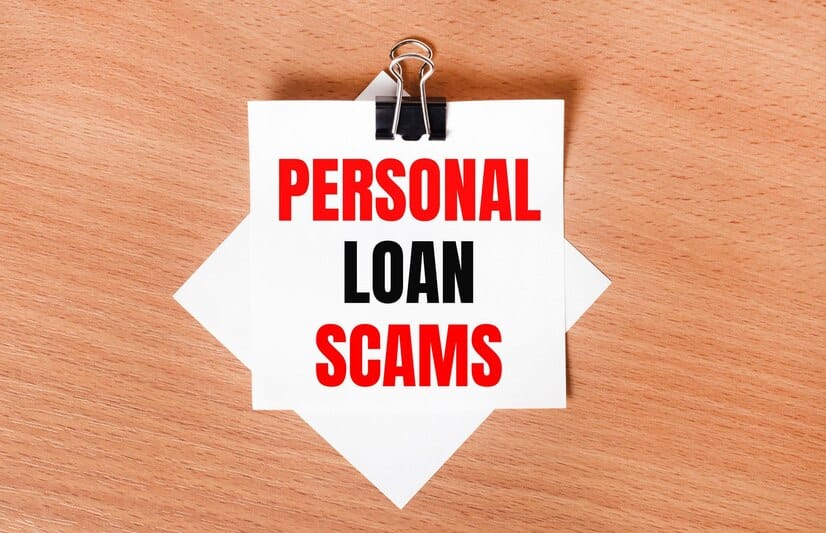Loans are often necessary for achieving personal or business financial goals. Whether you’re securing a loan for purchasing a home, funding a new business, or simply managing short-term financial needs, loans can be incredibly useful. However, the lending industry also attracts fraudsters who take advantage of unsuspecting borrowers. Loan scams and fraudulent offers are common, and they can lead to serious financial loss and even identity theft.
Understanding how loan scams work and learning how to identify warning signs can help you avoid falling victim to these scams. This article will provide a comprehensive guide on how to avoid common loan scams and fraudulent offers, from recognizing red flags to taking the right steps to protect yourself.
Understanding Loan Scams
Loan scams involve deceitful tactics used by criminals to trick people into providing money or personal information under the guise of receiving a loan. The scammer may claim to offer a loan, but instead, they aim to steal money, sensitive data, or both. Loan scams can take many forms, including online scams, phone scams, or even in-person scams.
Some common characteristics of loan scams include:
- Unrealistic terms: Scammers promise loans that sound too good to be true, such as low-interest rates with no credit check, guaranteed approval, or instant funding.
- Upfront fees: Legitimate lenders will typically not ask for upfront fees before processing a loan application. If you’re asked to pay money in advance, it’s likely a scam.
- Unlicensed lenders: Fraudulent lenders often operate without proper licensing or regulatory oversight. You should only work with reputable and licensed lenders.
- Pressure tactics: Scammers may pressure you to act quickly, claiming that the loan offer will expire or that there is a limited time to apply.
Common Types of Loan Scams

Loan scams can take several different forms, and it’s important to be aware of these variations. Below are some common types of loan scams that you should watch out for:
1. Advance Fee Loans
One of the most prevalent loan scams is the advance fee loan scam. In this scam, a lender will promise you a loan, often with attractive terms, but will ask you to pay an upfront fee before processing the loan. After the fee is paid, the scammer disappears, and the loan never materializes.
Warning Signs:
- The lender demands payment before granting the loan.
- The lender cannot provide a written contract or loan agreement.
- You are promised an unusually high loan amount for little or no credit check.
2. Payday Loan Scams
Payday loan scams occur when lenders offer small, short-term loans at extremely high-interest rates. Scammers may provide fake payday loan offers, claiming that you can receive funds quickly, but they often come with hefty fees and aggressive collection tactics.
Warning Signs:
- The loan terms are unclear, and you’re not informed of the fees involved.
- The lender asks for personal information, such as your bank account number, upfront.
- You’re asked to wire money before receiving the loan.
3. Fake Government Loan Programs
Some scammers impersonate government agencies or create fake loan programs that claim to help borrowers with debt relief, student loans, or small business financing. These programs promise low-interest loans with little to no qualification criteria.
Warning Signs:
- The scammer claims that you qualify for a government-backed loan with minimal requirements.
- The lender claims to have insider knowledge about government loans.
- You are asked to provide personal or financial information without verifying the lender’s legitimacy.
4. Credit Repair Loan Scams
Credit repair loan scams often target people with poor credit, promising to improve their credit scores in exchange for a fee. Scammers might also promise a loan, claiming that you will need a certain credit score to qualify for it, and then ask you to pay for credit repair services upfront.
Warning Signs:
- The lender promises to “fix” your credit for a fee.
- The lender asks for upfront payment before providing any services.
- You are told that your loan will only be granted once your credit score improves.
5. Personal Loan Scams
Scammers sometimes offer personal loans with attractive rates or terms, but these loans are often a ruse to gather your personal information, like your social security number, or to steal money from you in the form of upfront fees.
Warning Signs:
- The lender offers a loan with no credit check and guarantees approval.
- You are asked to wire money for “processing fees” or “security deposits.”
- The lender’s website appears unprofessional or lacks contact information.
How to Avoid Loan Scams
Avoiding loan scams requires being cautious and aware of the common tactics used by fraudsters. Here are several strategies you can employ to protect yourself from loan scams:
1. Verify the Lender’s Credentials
One of the best ways to avoid a loan scam is to verify the legitimacy of the lender. Reputable lenders should be licensed and regulated by relevant authorities. For example:
- In the U.S., the Consumer Financial Protection Bureau (CFPB) regulates lending practices and provides a list of approved lenders.
- Check with the Better Business Bureau (BBB) or other online resources to see if the lender has complaints or negative reviews.
2. Be Wary of Unsolicited Loan Offers
Be cautious if you receive an unsolicited loan offer via email, phone call, or social media. Legitimate lenders rarely offer loans without being contacted first by the borrower. Scammers often send mass emails or make cold calls to target vulnerable individuals.
3. Avoid Paying Upfront Fees
Do not pay any money upfront for a loan, especially if the lender insists on it before processing your application. This is a clear sign of a scam. Legitimate lenders may charge application fees, but these should be disclosed upfront and usually only after approval.
4. Research the Loan Terms
Before accepting any loan offer, thoroughly read and understand the loan terms. Ensure that:
- You are aware of the interest rate, repayment terms, and fees.
- The loan agreement is written and clear.
- You understand the total cost of borrowing.
5. Trust Your Instincts
If something about the loan offer seems too good to be true, it probably is. Scammers often promise extremely low interest rates, fast approval, or guaranteed loans. Always trust your gut feelings and proceed with caution.
What to Do If You Become a Victim of Loan Fraud
If you have fallen victim to a loan scam, it’s important to act quickly. Here are steps to take if you realize you’ve been scammed:
1. Report the Scam
Contact the appropriate authorities to report the scam:
- In the U.S., report to the Federal Trade Commission (FTC).
- Contact your state’s consumer protection agency or financial regulator.
- Report the scam to the lender’s regulatory body or association if applicable.
2. Notify Your Bank or Credit Card Company
If you provided sensitive information such as your bank account number or credit card details to a scammer, immediately notify your bank or credit card company. They may be able to freeze your accounts or reverse any fraudulent charges.
3. Monitor Your Credit Reports
Keep an eye on your credit reports for any signs of fraudulent activity. You can access your free credit reports annually from the Annual Credit Report website. If you notice anything suspicious, report it to the credit bureaus.
Conclusion
Loan scams can be costly and emotionally draining, but by staying vigilant and informed, you can avoid falling prey to fraudulent offers. Always research lenders, verify their credentials, and be cautious of unsolicited loan offers. By recognizing the red flags and understanding how scams operate, you’ll be better equipped to protect yourself from fraud.
If you’re ever in doubt, seek advice from a trusted financial professional or consumer protection agency. Remember, taking the time to carefully evaluate a loan offer can save you significant stress and financial hardship in the long run.
FAQs
1. What are the most common types of loan scams?
The most common types of loan scams include advance fee loans, payday loan scams, fake government loan programs, credit repair loan scams, and personal loan scams.
2. How can I verify if a lender is legitimate?
To verify a lender’s legitimacy, check their credentials with regulatory authorities, such as the Consumer Financial Protection Bureau (CFPB) or the Better Business Bureau (BBB). You can also read reviews and research the lender’s history.
3. Should I pay an upfront fee for a loan?
No, legitimate lenders do not ask for an upfront fee before processing a loan application. If you’re asked to pay money upfront, it’s a major red flag of a scam.
4. What should I do if I think I’ve been scammed?
If you believe you’ve been scammed, immediately report the incident to relevant authorities such as the Federal Trade Commission (FTC) and your bank. Monitor your credit reports for any signs of fraudulent activity.
5. How can I protect myself from loan scams in the future?
To protect yourself from loan scams, always research lenders, avoid unsolicited loan offers, understand the loan terms, and never pay upfront fees. Trust your instincts and be cautious of deals that seem too good to be true.

